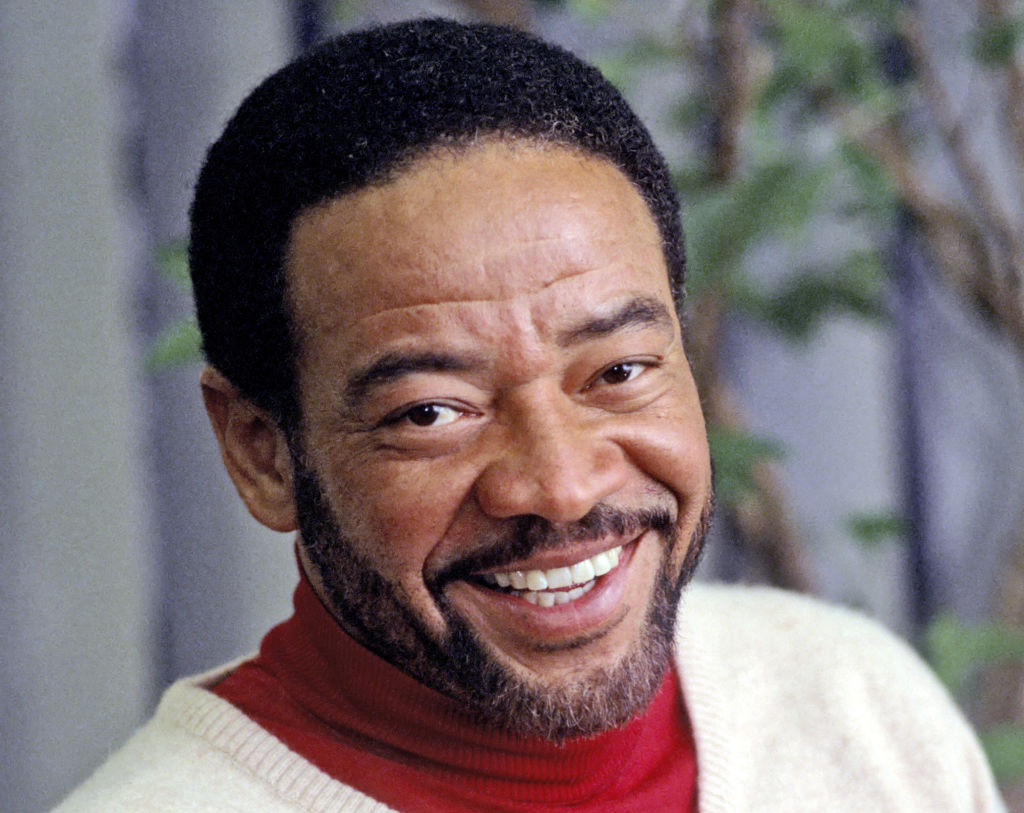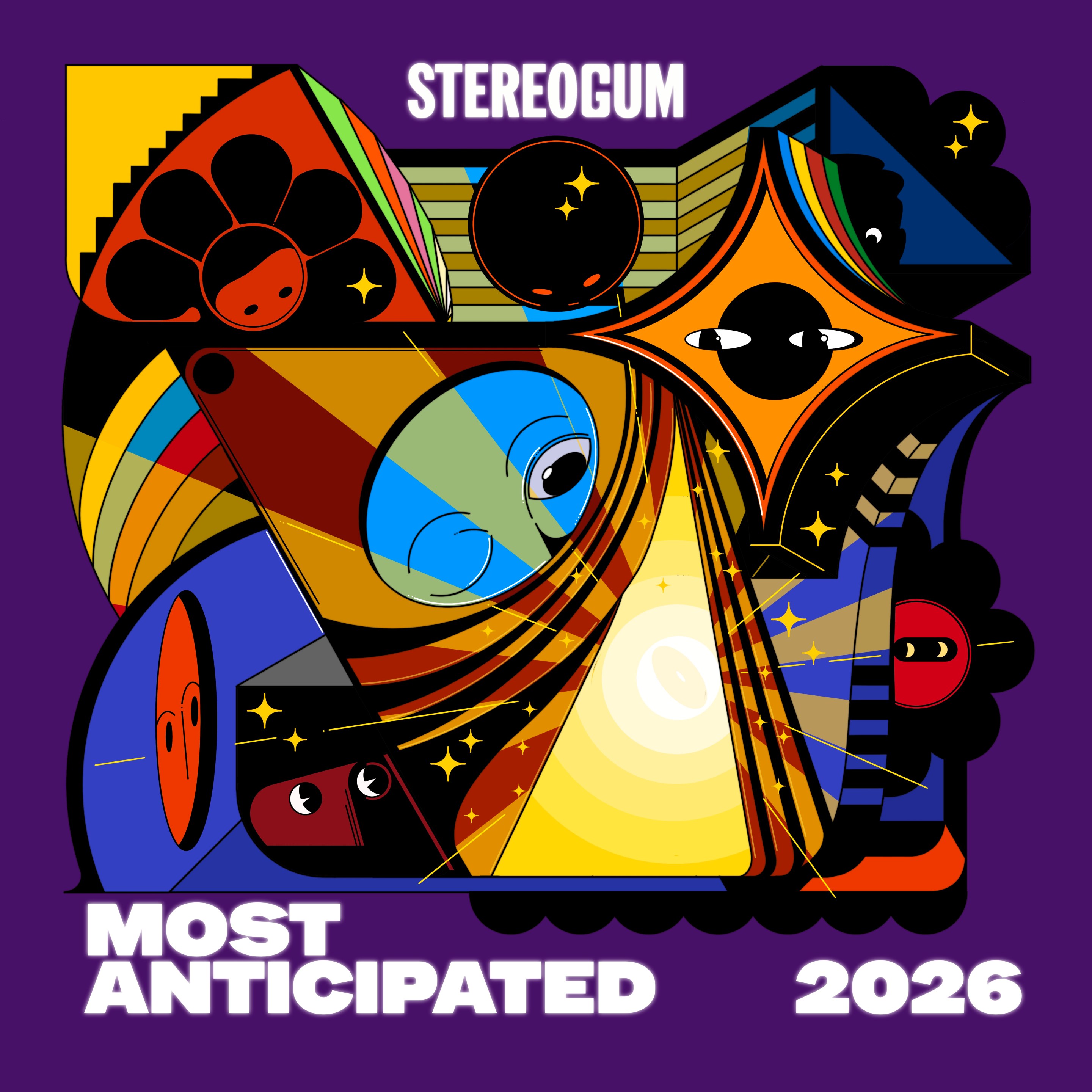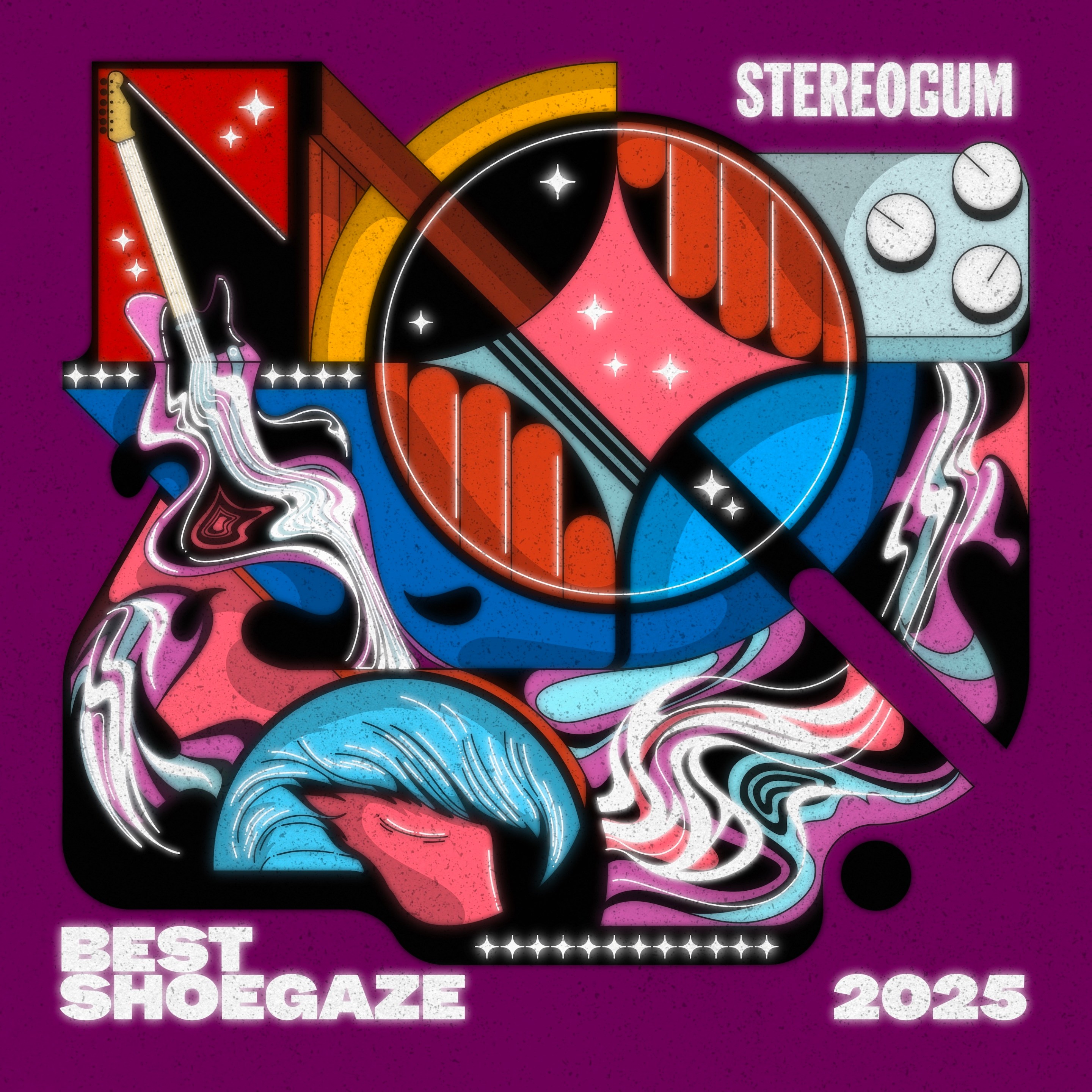It's one of the great disappearing acts in popular-music history. In 1985, Bill Withers, one of the greatest soul singers and songwriters of all time, got sick of the pressures and power struggles and demands of the pop-star career. He walked away from the music business completely, releasing no new music and playing no further live shows for decades. And yet Bill Withers never fully vanished from the culture at large.
Part of it was, of course, that Bill Withers' songs were too good. They continued to circulate in movie soundtracks, in TV commercials, and in covers, like the not-great Club Nouveau version of "Lean On Me" that became a #1 hit in 1987. And part of it was that Withers retired just as rap music was coming into its own as a commercial and creative force. In the decades that followed, hundreds of producers would take bits and pieces of Withers' recorded legacy and shape those songs into new ones.
Over the years, artists from just about every genre have sampled and interpolated Bill Withers' music. Some of those samples have been obvious: Will Smith repurposing "Just The Two Of Us" into a love song for his son Trey in 1997, Eminem using the same song for transgressive murder-ballad purposes that same year, DMX latching onto the bluesy force of "Ain't No Sunshine" to soundtrack his Steven Segal buddy movie in 2001. Other samples have been less so.
In the wake of Withers' death last week, many of us have been working on improving our moods by exploring the music that the man left behind. As this column shows, Bill Withers' catalog, abbreviated though it might be, includes plenty of hidden gems worth rediscovering. But it's also worth taking time to look back at all the tracks that sampled the man's work. Here's a list of 10 songs -- some global smash hits, some underrated album tracks -- that merely hint at the breadth of Withers' sampled legacy.
10. James Blake - "Radio Silence"
One of the best video clips on the entire internet is the spectacle of Bill Withers, in the documentary Soul Power singing "Hope She'll Be Happier" at a music festival in Zaire. It's one man playing a simple figure on an acoustic guitar, singing a heartbroken folk-blues koan with the entire force of his being, and holding tens of thousands in his hand. It knocks me sideways everytime I watch it.
"Hope She'll Be Happier" comes from Just As I Am, Withers' perfect 1971 debut. In 2014, James Blake made an admirable attempt to cover "Hope She'll Be Happier" at New York's Governors Ball festival. Two years later, Blake opened his album The Colour In Anything with a quote from "Hope She'll Be Happier." Technically, there's no sample on "Radio Silence." But Blake still uses Withers' song as an entry point, tapping into that same sense of loss and desolation, shaping his own hall of mirrors around it.
9. UGK - "Use Me Up"
In 1972, Bill Withers made it to #2 on the Hot 100 with "Use Me," a deeply funky song about the pleasure of losing yourself in an untenable romantic situation. Withers' friends and family are telling him that a particular woman is all wrong for him, that she doesn't care about him, that she'll destroy him. Withers acknowledges that all this is probably true, but he can't help himself. He's finished, and he's happy about it: "If it feels this good being used, you just keep on using me until you use me up."
20 years later, a young rap duo from the Texas town of Port Arthur took the monster "Use Me" groove, more or less remaking the song. Pimp C would go on to rap about using other people again and again over the course of his career. But on "Use Me Up," one of the singles from UGK's 1992 debut Too Hard To Swallow, he's the one being used. He knows it, and he's OK with it: "I used to be the player, now I'm getting pimped/ I used to be hard, now I'm living all limp." Whereas dozens of other rap producers would use legendary session drummer James Gadson's "Use Me" breakbeat -- see below -- Pimp, a true funk devotee, took the entire monster track and somehow juiced it up even further. In the video, Pimp becomes quite possibly the first rapper in recorded history to rock a Nirvana T-shirt -- one doomed and vulnerable icon recognizing another.
8. Fatboy Slim - "Demons" (Feat. Macy Gray)
Before he got famous, Bill Withers served nine years in the Navy. He spent most of that time installing toilets. In 1973, when he'd only been famous for a couple of years, Withers recorded his Live At Carnegie Hall album, a classic of the form. "I Can't Write Left-Handed," a seven-minute song captured on that record, is the most personal kind of anti-war lament. Withers sings from the perspective of a young man -- young like he'd been when he enlisted -- trying to grapple with the idea that he'd have to live the rest of his life without his right arm.
The slow, consoling "I Can't Write Left-Handed" groove drew on both blues and gospel. In 2000, Fatboy Slim, then enjoying pop-conqueror status, took that groove and threw some big and juicy drums behind it. We mostly think of Fatboy Slim as a force for gimmicky hedonism, but he was enough of a funk-soul brother to do something with the pathos that those chords conjured. On "Demons," the soul rasper Macy Gray, having a moment of her own, sang about the impermanence of darkness: "All of your demons will wither away/ Ecstasy comes, and they cannot stay."
7. Kendrick Lamar - "Sing About Me, I'm Dying Of Thirst"
In 1972, the drummer James Gadson was playing in Charles Wright's Watts 103rd Street Rhythm Band. Withers recruited most of the band to record Still Bill with him, and they kept touring and recording with Withers. This, in turn, led to an absolutely legendary session-drummer career for Gadson, who's played on classic records from the Jackson 5, Marvin Gaye, Diana Ross, and Beck, among many others.
About a minute into the aforementioned smash "Use Me," Withers leaves a pregnant, hanging pause on the chorus, and you can hear Gadson's laid-back but intricately propulsive drums in isolation. For generations, rap producers have been building songs from that split-second of Gadson drumming. The "Use Me" breakbeat has shown up on tracks from Nas, Drake, J. Cole, Big K.R.I.T., and Logic, among many others. But the greatest use of that "Use Me" breakbeat is the 12-minute centerpiece of Kendrick Lamar's ambitious stunner Good Kid, m.A.A.d City, where the subtle insistence of those drums gives Kendrick's stressed-out introspection its heartbeat.
6. Kanye West - "Roses"
Credit Kanye West for listening to the deep cuts. Bill Withers' song "Rosie" did not appear on his 1977 album Menagerie. Instead, it's a demo that only showed up later on as a bonus track. It's still a killer. Over a plaintive piano line -- and eventually, a woozy synth oscillation -- Withers expresses love in the simplest way that anyone can: "I smile when Rosie comes to see me/ And I'm sad when Rosie goes away."
West took that breezy plaint and used it to build one of the emotional centerpieces of the 2005 album Late Registration. On "Roses," West and his family -- so many aunties they could have an auntie team -- gather in the hospital to pray for a beloved matriarch. Withers' voice arrives on the chorus as a balm, with West's cousin Tony Williams adding melismatic gospel yowls. In a way, Withers becomes the reassuring center of the song, bringing everything back into focus when the stress threatens to spiral.
5. 2Pac - "Papa'z Song" (Feat. Wyked & Poppi)
By the '80s, Bill Withers was getting sick of the record business, and he was doing a lot of his recording with other artists. "Just The Two Of Us," one of Withers' biggest hits, is technically a collaboration with the smooth-jazz saxophonist Grover Washington Jr. Likewise, the breezy and sprawling 1981 song "Soul Shadow" is really a Bill Withers song, even if Withers gifted it to the Crusaders, a jazz fusion group from Houston. The eight-minute "Soul Shadow" gives the various Crusaders plenty of room to shine, but Withers glows at the heart of the song.
Tupac Shakur was rapping over Bill Withers samples as early as 1991; "Soulja's Story," from Pac's debut album 2Pacalypse Now, flips "Ain't No Sunshine." Two years later, Pac came out with the single "Papa'z Song," a primal fuck-you directed at absent fathers. It's a dark song, but producer Big D The Impossible builds it on a sample of the lilting "Soul Shadow" groove.
4. Cam'ron - "Horse & Carriage" (Feat. Mase)
Long before he became an internet cult hero, Cam'ron broke out with the 1998 single "Horse & Carriage." Cam, hitting us with a little Puerto Rican judo, was nowhere near as slick and assured as he would soon become, and a lot of the appeal came from Mase's effortlessly smooth hook and from the squelchy stop-start Trackmasters beat. "Horse & Carriage" was a big song, peaking at #41 on the Billboard Hot 100, but Cam always thought it could've been bigger. Mase and Cam knew each other well. They'd been in the Big L-shepherded Harlem group Children Of The Corn together, and the two played on the same high-school basketball team. But Mase isn't in the "Horse & Carriage" video; he'd reportedly demanded $40,000 to show up. Cam never forgave him. Decades later, Cam and Mase are still beefing.
I've probably heard "Horse & Carriage" hundreds of times in my life, and I had no idea of where that Trackmasters beat came from until I sat down to write this piece. The song samples "Who Is He (And What Is He To You)?," a Withers song from Still Bill. Where "Horse & Carriage" is all about being cool and desirable, "Who Is He" is a stressed-out, betrayed piece of work. Withers suspects his partner of cheating on him, writing an entire story in his head based on a fleeting glimpse of a facial expression. He invests more rage and depression into the phrase "dadgum it" than anyone else in history.
On "Horse & Carriage," that "Who Is He" groove is warped and altered, transformed into a playful skip. But it's still the same track -- that eternal rap-music alchemy of taking one thing and transforming it into its opposite.
3. Dr. Dre - "Let Me Ride"
The "Use Me" breakbeat is an all-time classic, but it's not the greatest of the Bill Withers/James Gadson breaks. That distinction instead goes to the one on "Kissing My Love," another song from 1972's Still Bill. "Kissing My Love" is a dizzy-in-love whirl, with Withers sounding his happiest: "She's got me in love and I can feel my heart just a-thumping and a-skipping!" Gadson responds with a drum beat that thumps and skips. For a quick second at the beginning of the song, those drums are all we hear.
Over the years, that drumbeat has reappeared probably hundreds of times. It's on the Jungle Brothers' "Straight Out The Jungle," Eric B. & Rakim's "In The Ghetto," X-Clan's "Tribal Jam," Poor Righteous Teachers' "Each One Teach One," Master P's "Bastard Child," Goodie Mob's "Guess Who," Big K.R.I.T.'s "Lac Lac," J. Cole's "The Cut Off." Scarface used the "Kissing My Love" drums on "A Minute To Pray And A Second To Die" and on "Now I Feel Ya." You've probably heard that drum beat more times than you'll ever know.
The greatest and most famous use of those "Kissing My Love" drums belongs to Dr. Dre's 1993 Chronic single "Let Me Ride," an absolutely filthy rap standard if ever there was one. Dre is a sample king, and "Let Me Ride" also hijacks the foundational James Brown "Funky Drummer" drums and takes its hook from Parliament's "Mothership Connection (Star Child)." But the nervous insistence of the main beat is all "Kissing My Love." Dre even taps into the original track's euphoria -- with the crucial distinction that he's not talking about the joy of being with one woman; he's taking about the joy of being the motherfucking D-R-E from the CPT, on a robbing spree, a straight G.
2. TWDY - "Players Holiday"
Bill Withers' 1977 Menagerie single "Lovely Day" was only a moderate hit at the time, peaking at #30 on the Hot 100. Thanks in part to various reissues and remixes and soundtrack appearances, it's now a standard. "Lovely Day" is right up there with "Lean On Me" and "Ain't No Sunshine" on the list of Bill Withers songs that everyone knows and loves. This is as it should be. "Lovely Day" floats and glides and shimmers. It's a perfect piece of music.
There's no iconic "Lovely Day" breakbeat or anything, but "Lovely Day" is still a popular sample. It's shown up on DJ Jazzy Jeff & The Fresh Prince's "Lovely Daze," Twista's "Sunshine," Swizz Beatz' "Take A Picture," and plenty of others. But the song that best reflects the generous spirit of the original is "Players Holiday," the 1999 single from the Bay Area rap supergroup TWDY.
Over that sunstruck bass-pop, some of the best in the Bay -- Too $hort, Ant Banks, Rappin 4-Tay -- get loose and celebratory. At the end of the song, Mac Mall drives it all home: "Mama used to put my clothes on layaway/ Now I'm dipped everyday, and every C-note got big face/ Holler at me, man, used to ride the back of the bus/ Now I'm spinning V-12's, though the times is rough." In the video, everyone sips mimosas on a yacht, just delighted with life.
1. Blackstreet - "No Diggity" (Feat. Dr. Dre & Queen Pen)
"Grandma's Hands," the third song from Bill Withers' first album, was never a single, but it's one of the man's almighty classics, and it might be the most perfect illustration of what made Withers such a towering figure. On "Grandma's Hands," Withers sings about a different kind of love. He zones out on the fingers of the woman who once meant everything to him: "Grandma's hands sooth the local unwed mother/ Grandma's hands used to ache sometimes and swell/ Grandma's hands used to lift her face and tell her/ She'd say, 'Baby Grandma understands/ That you really loved that man/ Put yourself in Jesus' hands."
It's a devastating picture of love and support and empathy. As the song ends, Withers simply says, "I don't have grandma anymore/ If I get to heaven, I'll look for grandma's hands." When news of Withers' death hit the wires last Friday, that was the one image I found comforting: Withers finding his grandma's hands.
Performing "Grandma's Hands" on TV once in the '70s, Withers says that he wrote the song for a lady who was "not sexy at all, but just a nice old lady who used some very nice old gnarled hands to make life kinda nice for me at that time, when I really needed somebody." So it's endlessly strange and transgressive that producers Teddy Riley and William "Skylz" Stewart took "Grandma's Hands" and used it as the basis for quite possibly the sexiest big hit of the entire '90s.
Terry Riley, once the inventor of new jack swing, surged back to the top of the charts in 1996, leading the R&B group Blackstreet and coming up with a dominant hit about a girl who, in Riley's words, "got tricks in the stash, stacking up the cash, fast when it comes to the gas." The song was built on an elemental groove, and that groove came from "Grandma's Hands."
"No Diggity" takes the opening seconds of "Grandma's Hands" -- a loose guitar strum, Withers humming wordlessly -- and uses them to build a sexed-out '90s rap&B fantasia. That original Withers grunt -- hmm-mmm -- could've come from an old spiritual. Riley and his collaborators unlocked something sexy within it. They transformed it into a grunt of pure physical appreciation, an instinctive damn. That's a magic trick. Bill Withers made that kind of magic trick possible.






